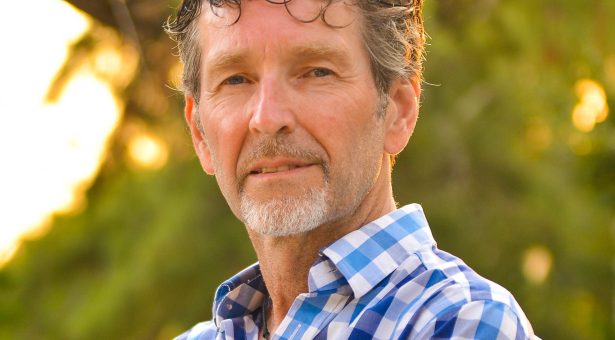
Whilst completing a PhD at CIRAD in Montpellier, Jos came across a job opening published in Nature that gave him the chills. The year was 1995 and the advertised vacancy was to work in the Virology department within the John Innes Centre.
“The job vacancy was a perfect fit with my ambitions. The project was looking for a post-doc to establish the genetic transformation of cowpea, in collaboration with the International Institute of Tropical Agriculture (IITA) in Nigeria. Its goal was to generate coat protein-mediated virus resistance in African varieties. It was perfect!”
With his application sent, a month later Jos travelled to Norwich for the interview. We asked Jos how he felt at that exciting time.
“I carried with me a load of nervosity, mostly because the John Innes Centre is not the least of research places. However, my anxiety (and thirst) got quickly quenched during my reception in the local pub by George Lomonossoff, team leader in the Virology department. The next day, I met Andy Maule in whose lab the job would be located.”
Following the interview, Jos returned to Montpellier to finish his PhD thesis. A few weeks later, he received the good news and was offered the position at JIC.
“I think I jumped up and down for a week!”
During his five years as a post-doc in the Virology department, Jos spent time in the Maule Group as well as with colleagues including George Lomonossoff, John Stanley and Peter Markham. He also worked with teams led by Paul Christou, Phil Mullineaux and David Baulcombe.
At the end of 1999, Jos returned to CIRAD, Montpellier for a further two and a half years, this time as an EU-funded post-doc focusing on developing salt and drought tolerance rice for Vietnam. From there Jos took a post-doc role continuing this research project at The University of California (UC), Davis, USA.
One month into the research at UC, Jos became aware of a further opportunity, this time in an AgBiotech startup looking for somebody to work as the tissue culture and transformation lead as their lab was being established.
We asked Jos about this step in his career,
“After returning to UC, I applied for the role, and about a year later I started that position at Arcadia Biosciences. Finally, I had a ‘real’ job, and kept it for 18 years!”
Making the transition from academia into industry is just one of the many career paths researchers might be interested in and Jos told us how making this move was for him.
“Switching to a startup, for me, turned out to be just what was needed. Instead of ten individuals working in one research lab, sweating to get as many papers as possible, now I was with ten colleagues on different tasks, but this time together sweating towards achieving the same goal. Soon the startup grew from ten employees to one hundred and ten.”
As Jos’ team at Arcadia Biosciences expanded, he found that he was needed less in the lab. To diversify his role, he began to focus on several of the big grants that Arcadia received from the United States Agency for International Development (USAID) to implement research projects in Africa and Asia.
“With my background in international research collaborations, I gradually took on the technical project coordination of those projects.
It was during this new role that I enjoyed working on applied and market-oriented projects. My last project at Arcadia was particularly rewarding and it included the product development of reduced gluten wheat, which I found to be a deeply motivating endeavour.”
In 2020, Arcadia abandoned research and focused solely on their products in the market. So, after a long and satisfying career there, Jos began working as a freelance AgBiotech consultant. After six months, he accepted a position as a Senior Scientist with Origin Prime, where he continues to work today.
We asked Jos what a typical day looks like now,
“In a small ten-person company, I fulfil all tasks that come across my plate. Typically, I spend fifty percent of my time in a lab, greenhouse or field, and fifty percent at my desk, researching, writing, calling and networking.”
Over his varied and multi-national scientific career, one highlight comes to mind,
“One of my greatest achievements thus far has been to bring ‘nitrogen use efficient rice for Africa’ from conception in 2008 to contributing to the dossier for regulatory approval of the crop in Nigeria in 2020. That was twelve years of project coordination, helped by many dexterous hands, resulting in a close-to-application product.”
Finally, we asked Jos what advice he would have found most helpful back then for his journey ahead.
“The JIC and The Sainsbury Lab are a magnet for international talent, therefore I would highly recommend students and post-docs to spend their time in Norwich wisely; build up a large network of colleagues and do not forget to socialise. I will never forget the Friday afternoon happy hours in the Rec Centre, where socialising brought so many new friendships. Alike for the invincible JIC soccer team!”
On professional networking and friendship, Jos shared this final thought:
“I cannot tell you how many times I have ran into ex-JIC folks during my later international collaborations. It is very helpful in those cases, to have shared some common experiences in Norwich.”